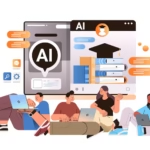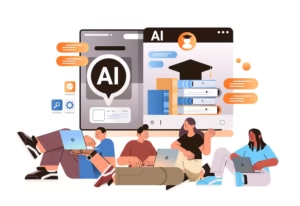
Table of Contents
Top Skills Employers Look for in 2024 Graduates
Introduction

As the job market continues to evolve, the skills that employers value most are also changing. For graduates entering the workforce in 2024, understanding these in-demand skills can be crucial for career success. This blog will highlight the top skills that are expected to be highly sought after by employers in 2024 and how students can develop these skills to enhance their employability.
Adaptability and Flexibility
- Importance:
- Adaptability and flexibility are essential in today’s rapidly changing work environments. Employers value individuals who can handle multiple tasks and adjust to new challenges quickly, showcasing resilience and the capacity to thrive under pressure. These traits indicate an ability to embrace new ideas and integrate different methodologies, making you a valuable asset in any organization.
- How to Develop:
- Engage in diverse projects: Seek out opportunities in various fields and roles. Participating in different activities helps you gain a broad range of experiences and skills.
- Internships and part-time jobs: These provide practical experience and exposure to various work cultures, enhancing your ability to adapt.
- Take on challenging roles: Pursue responsibilities that push you out of your comfort zone, encouraging quick learning and adaptability.
- Stay current: Keep up with industry trends by following newsletters, attending webinars, and participating in workshops.
Digital Literacy
- Importance:
- Digital literacy is a crucial skill in the modern workplace. It involves understanding and effectively using digital tools and platforms, which is essential across nearly all industries. Proficiency in digital tools enhances efficiency and productivity, making you more competitive in the job market.
- How to Develop:
- Take online courses: Use platforms like Coursera, Udemy, and LinkedIn Learning to learn relevant digital tools and software.
- Stay updated with technology trends: Follow tech news, join online forums, and engage in communities related to your field to stay informed about the latest advancements.
- Practice using various software: Gain hands-on experience with different digital platforms and tools to build proficiency.
- Learn about digital security: Understand online safety and privacy basics by taking courses on cybersecurity and learning about secure browsing practices.
Emotional Intelligence
- Importance:
- Emotional intelligence (EQ) involves understanding and managing your emotions and those of others. It’s crucial for teamwork, leadership, and communication. High EQ leads to better collaboration, conflict resolution, and a positive work environment, making it an invaluable skill in any professional setting.
- How to Develop:
- Practice active listening: Focus on truly understanding what others are saying without interrupting. Reflect back what you hear to ensure comprehension.
- Seek feedback on your interpersonal skills: Regularly ask colleagues and mentors for feedback on how you handle interactions and relationships at work.
- Engage in activities that require teamwork and collaboration: Join team sports, participate in group projects, and engage in social activities that require working closely with others.
Critical Thinking and Problem-Solving
- Importance:
- Employers seek individuals who can think critically and solve complex problems. These skills are essential for innovation and improving processes, as they involve analyzing situations, identifying issues, and developing effective solutions.
- How to Develop:
- Engage in activities that challenge your thinking: Participate in puzzles, coding challenges, and strategic games to sharpen your analytical skills.
- Participate in discussions and debates: Engage in forums and debates that require you to analyze different viewpoints and construct well-reasoned arguments.
- Reflect on your problem-solving processes: After tackling a problem, review your approach and outcomes to identify areas for improvement.
Communication Skills
- Importance:
- Effective communication is vital in any job. Being able to articulate your ideas clearly and listen to others is key to successful collaboration. Strong communication skills facilitate better teamwork, prevent misunderstandings, and enhance productivity.
- How to Develop:
- Practice public speaking: Join organizations like Toastmasters, give presentations, or volunteer to speak at events to improve your verbal communication.
- Write regularly: Enhance your written communication by maintaining a blog, writing reports, or engaging in creative writing.
- Engage in conversations that require clear and effective communication: Practice active listening and articulate your thoughts clearly in discussions with colleagues, friends, and mentors.
Collaboration and Teamwork
- Importance: The ability to work well with others is a cornerstone of most professional environments. Employers look for graduates who can contribute positively to team efforts, ensuring projects are completed efficiently and effectively. Collaboration skills are crucial for fostering a cooperative work environment and achieving collective goals.
- How to Develop:
- Participate in group projects: Engage actively in group assignments during your studies. Take the initiative to coordinate tasks, manage conflicts, and ensure the team’s objectives are met.
- Join clubs or organizations: Become a member of student clubs, sports teams, or professional organizations. These experiences provide opportunities to work closely with others and develop teamwork skills.
- Take on leadership roles: Volunteer for positions that require you to lead and coordinate with team members. This not only builds leadership skills but also enhances your ability to work collaboratively.
Technical Skills
- Importance: Specific technical skills relevant to your industry can set you apart from other candidates. These skills vary widely depending on your career path but are crucial for performing job-specific tasks and contributing to technological advancements.
- How to Develop:
- Identify key technical skills: Research the essential technical skills in your field. For instance, coding languages for software developers, design tools for graphic designers, or laboratory techniques for scientists.
- Pursue relevant coursework: Enroll in classes and online courses that focus on these technical skills. Platforms like Coursera, Udemy, and LinkedIn Learning offer specialized training.
- Obtain certifications: Earn industry-recognized certifications to validate your skills and knowledge. Certifications demonstrate your commitment and expertise to potential employers.
- Engage in hands-on projects: Apply your skills in real-world scenarios through internships, freelance work, or personal projects. Practical experience is invaluable for mastering technical competencies.
Creativity and Innovation
- Importance: Creativity drives innovation, which is essential for staying competitive in any industry. Employers value employees who can think outside the box and bring fresh ideas to the table. Creative thinking leads to novel solutions, improved processes, and enhanced products or services.
- How to Develop:
- Engage in creative activities: Pursue hobbies that stimulate your creativity, such as painting, writing, or playing a musical instrument. These activities help you think divergently and explore new ideas.
- Challenge yourself: Regularly tackle problems that require innovative solutions. Approach tasks from different perspectives to develop your creative problem-solving skills.
- Stay curious: Cultivate a mindset of curiosity and exploration. Read widely, attend workshops, and expose yourself to new experiences to fuel your creative thinking.
Leadership Skills
- Importance: Even if you’re not in a managerial position, leadership skills are valuable. They include the ability to motivate and guide others towards achieving goals. Leadership skills are essential for taking initiative, inspiring teamwork, and driving projects to successful completion.
- How to Develop:
- Take on leadership roles in student organizations: Volunteer for positions such as president, treasurer, or event coordinator in clubs or societies.
- Volunteer to lead projects: Offer to manage group projects or team assignments in academic settings or during internships.
- Seek mentorship from experienced leaders: Find mentors who can provide guidance, share their experiences, and offer advice on developing your leadership abilities.
Cultural Competence
- Importance: In a globalized world, understanding and respecting diverse cultures is essential. Employers look for individuals who can work effectively in diverse environments and contribute to an inclusive workplace. Cultural competence involves recognizing and valuing different perspectives and fostering an environment where everyone feels respected.
- How to Develop:
- Travel: Experience different cultures firsthand by traveling to various countries and immersing yourself in their customs and traditions.
- Learn new languages: Studying a foreign language can help you communicate better with people from different backgrounds and understand their cultures more deeply.
- Participate in cultural exchange programs: Engage in exchange programs that allow you to live and study in a different country, enhancing your cultural awareness.
- Engage with people from different backgrounds: Join multicultural clubs, attend cultural events, and build relationships with individuals from diverse backgrounds to broaden your perspective.
Read More Blogs:
- How to Use AI for Effective College Applications: Your Path to Admission Success

- Top AI Study Hacks for Students to Skyrocket Grades and Save Time

- How Artificial Intelligence is Helping Students and the Tech Industry

- Summer Internship Programme 2025
- Front-end Developer Jobs – Kolkata Job Opportunities for All Levels







Leave a Reply